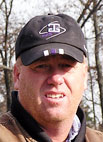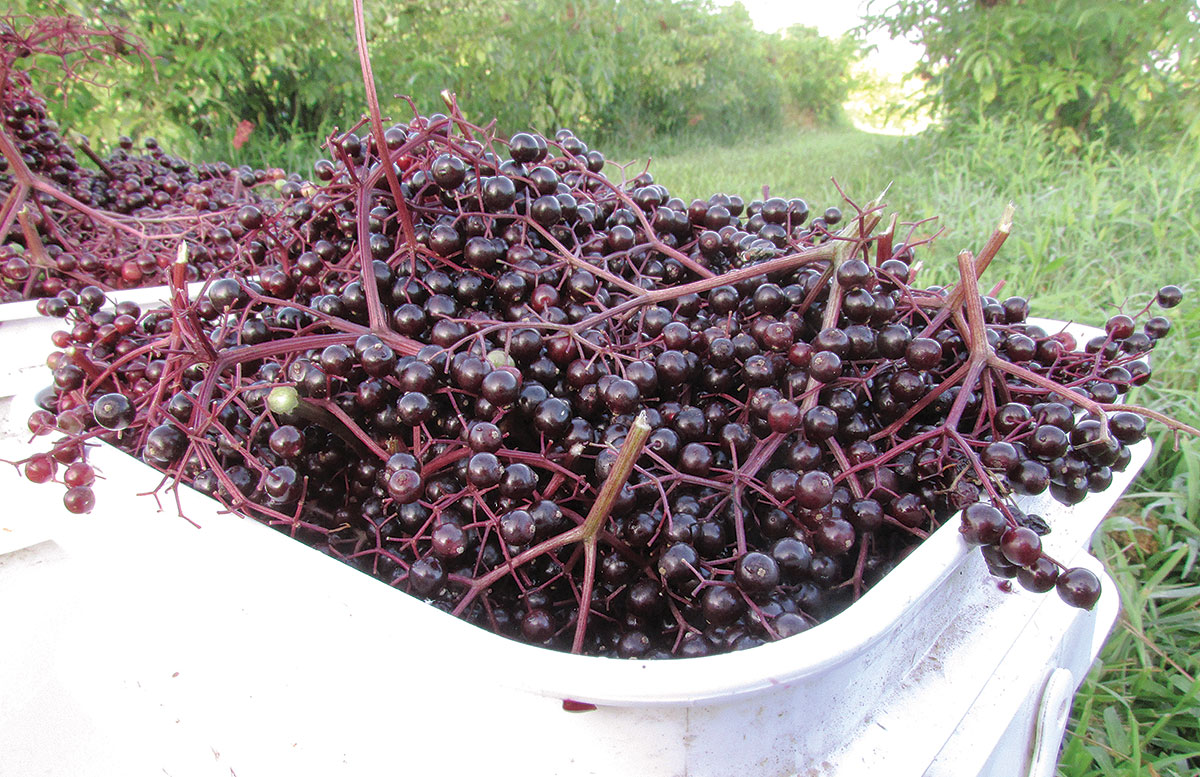
Kenny Hinkle is not psychic, but he tries to be. While many people don’t know what they are going to have for dinner next weekend, Kenny is working hard to make sure that we can have high quality and reasonably priced beef on our tables – 5 years from now.
Kenny is in the seedstock business. The way he looks at it, when he is selecting sires for artificial insemination, he knows that it will be 9 months before the calf will be born, 18 months or so until that animal is old enough to breed, 9 months more until that calf is born, and another year or two until that animal is butchered. Though that seems like a long time frame to try to plan for, Kenny thinks it is essential that producers try.
“We want everybody to help improve meat quality,” Kenny said. Part of the reason Kenny is so passionate about taking precautions is because “it takes a long time to fix problems in the industry.” When some people look to find fault with animal agriculture, it is important not to give them something to criticize. He also knows that most people don’t mind paying extra for quality.
Kenny and his wife Janyce started Hinkle’s Prime Cut Angus in 1995. Their headquarters is south of Nevada, Mo. It was a big step for the family when Kenny quit working at 3-M and started building his beef cattle operation. “We’ve done it all on our own,” Kenny said, “and that makes us appreciate it even more.” The Hinkles currently own 200 acres and lease another 450. With the help of their son, Trevor, and their daughter and her husband, Courtney and Blake Baker, the Hinkles run 450-500 head of cattle. They have an annual sale at their facilities the 3rd Monday of March, in addition to selling animals private treaty year-round. Kenny also supports the Missouri Angus Association as a board member.
“We have to be ready to adapt,” Kenny said. Though he wants to breed cattle that will help improve the beef industry as a whole, Kenny is also focused on giving local producers what they want. For instance, Kenny’s herd is predominately fall calving. The main reason he schedules for fall calves is because most producers in the area like to calve in the spring. That way, his bulls are ready to be put to work when area cattlemen need them. Kenny is also working towards having enough animals born in the spring that he can have a fall sale starting in 2012.
The family chose to raise Angus cattle because they feel that Angus “are the most complete beef cattle breed there is.” Another aspect of the breed that Kenny values is the amount of work and data available through the Angus Association. Because of all the research that has already been done, Kenny said producers “can strive for anything they want.”
What Kenny wants are cattle that carry good maternal traits like fertility and calving ease and possess good growth and carcass characteristics. Fertility is very important for Kenny because he utilizes a 100 percent artificial insemination or embryo transfer program. If a cow doesn’t breed, she doesn’t stay on his farm. It is easy for him to keep track of fertility and thanks to modern technology; he can keep an eye on the carcass quality as well.
He uses ultrasound technology on every animal on his farm at 1 year of age to check the ribeye size and marbling, and he also genotypes all his donor females and some of his bulls.
Regardless of the amount of research available, it takes concerned producers like Kenny Hinkle who work hard and truly care about the future of the industry to ensure that consumers around the world have high quality meat today, tomorrow and in 5 years.







